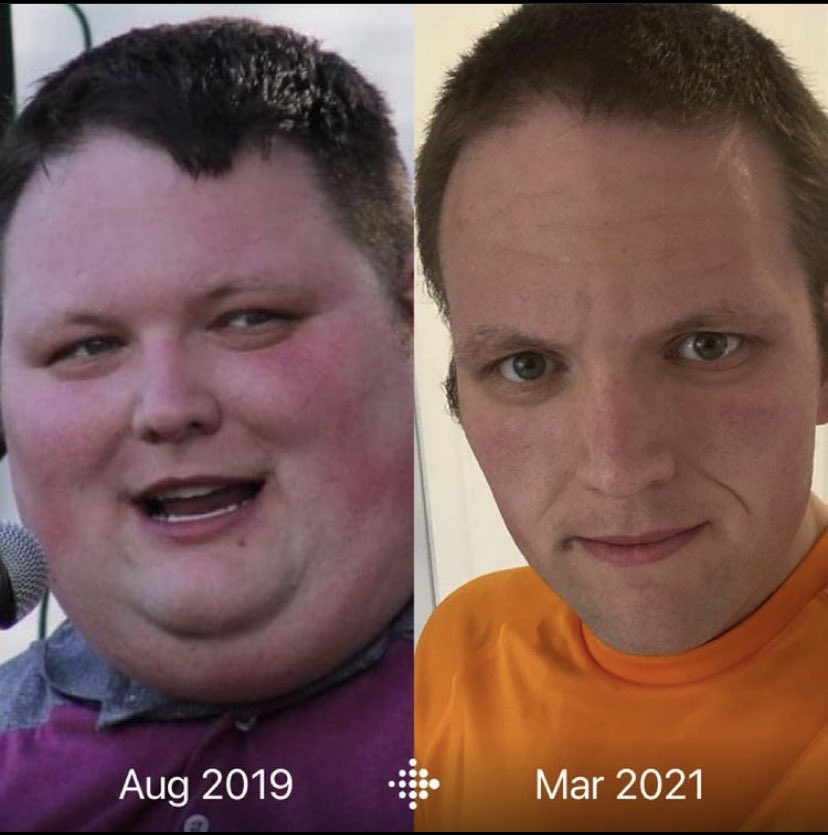
Kara Donbrock, fitness and wellness program manager, graduate student | Photo provided by Kara Donbrock
Two broken feet and an eating disorder do not immediately come to mind when one thinks of a healthy lifestyle. This is exactly what Wright State University’s Fitness and Wellness Program Manager Kara Donbrock experienced.
Intense healthfullness or unhealthy obsession?
Society often pairs physical and mental health together. Working out supposedly boosts mentality, and a positive outlook can encourage physical activity.
Physical fitness and good mental health can be mutually exclusive.
“There’s a lot of research out there that supports a connection between physical and mental health, as a positive correlation,” associate director for Student Advocacy and Wellness at WSU, Destinee Biesemeyer, said. “It [physical activity] can be beneficial towards mental health.”
A fine line exists between intense healthfulness and an unhealthy obsession.
The female triad
Donbrock started running in high school, and it quickly motivated every thought, action and life decision. Before finding her passion, the middle schooler considered herself unathletic. She struggled with body image and self-confidence.
“I was very insecure, even when I was young. Going into high school, I started to run, and that sort of became my thing. Unfortunately, I started to become a little bit too obsessed with running,” Donbrock said.
Eventually, the avid runner took drastic measures to improve her cross-country race times. She would run a minimum of three miles per day, sometimes training multiple times a day. Her lunch consisted of a can of peas. At 5-foot-7, she barely weighed 100 pounds.
To any random bystander, Donbrock exhibited peak physical condition. She lost weight and improved drastically.
“I had an issue. I definitely had an eating disorder where I had a very negative relationship with my body and food,” Donbrock said.
According to Biesemeyer, an entire classification of eating disorders called orthorexia exist to define situations like Donbrock’s.
“It’s like a very intense obsession with healthy foods and working out, to the point that you can’t indulge in something. You can’t take a rest day,” Biesemeyer said.
An obsession can have the opposite effect on mental health.
The athlete fell victim to the ‘female triad,’ characterized by under-eating, overtraining and the loss of her menstrual cycle.
Donbrock eventually broke her left foot running a half marathon due to low bone density – a side effect of her unhealthy lifestyle habits.
Two years later, she broke her other foot.
Donbrock totaled nine stress fractures in her feet during her running career.
Although devastating, her second injury woke her up. Donbrock realized the harsh reality she was living; A reality she created herself.
Now Donbrock embraces her body and trains for strength instead of weight loss. She also helps others do the same by leading fitness classes and sharing her story.
A healthy lifestyle
Justin Boggs, a WSU alum, tells quite a different story, though he still arrives at the same destination. His main goal was weight loss, but along the way, he found the path towards a healthy lifestyle.
“Weight loss felt like a vehicle to my other goals.” Boggs said.
Around the fall of 2019, Boggs weighed 420 pounds. He struggled to find comfortable fitting pants, and walking a mile became a challenge. The 33-year-old knew he needed to change his habits.
Boggs found all the intentional weight loss programs overwhelming and eventually settled on limiting calories and increasing physical activity. It worked.
He now weighs half his starting weight – 210 pounds – and currently trains for half marathons. The alum attributes his success to finding the right balance.

“If you keep an eye on what you do, then you can be healthy, but not to the point where it’s detrimental to your relationships with people or your mental health,” Boggs said. “It would really stink to go to a nice restaurant and not be able to eat.”
Athletes may reach their goals slower, but they will be reached more sustainably.
“Are you going to necessarily want to stick with a Jenny Craig diet for the rest of your life? Probably not. But you can stick with a healthy lifestyle,” Boggs said.
Donbrock had to break both feet to realize her obsession, but others can still obtain a healthy lifestyle without such drastic measures.
The journey may not be quick, but it will be worth it.
